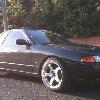Td05 On A Rb20?
Announcements
-
Similar Content
-
Latest Posts
-
By Dose Pipe Sutututu · Posted
Pretty cool No battery backup siren, I have a motorcycle siren in mine. -
Nothing to do with issue, but checkout this link for a magnetic connector: https://werksgruppe.com/pages/chargesafe I always forget to hook mine up to charger and I’m convincing myself if I had this it would always be charged..
-
By TurboTapin · Posted
I'm presuming those washers are only mean to be used with the Nitto gear? -
By drifter17a · Posted
Anyone fitted nitto rear washer to neo rb25? It is almost 3 times thicker pushing crank wheel out ny around 1-2mm so damper may not fully sit in or evern gear fully sit on woodruff key, thoughts? https://www.jdmgarageuk.com/nit-crgr-oplrb.html?gad_source=1&gad_campaignid=21704138281&gbraid=0AAAAAqLt7fNX7Rm_E5HOcGFL-flvKIrOf&gclid=Cj0KCQjwrPHABhCIARIsAFW2XBMBPvtEpZgsFMXO-BnXstE-9q1sUZWx5SFWMnFV-K35UGnngYKNJTQaArw-EALw_wcB
-






Recommended Posts
Create an account or sign in to comment
You need to be a member in order to leave a comment
Create an account
Sign up for a new account in our community. It's easy!
Register a new accountSign in
Already have an account? Sign in here.
Sign In Now